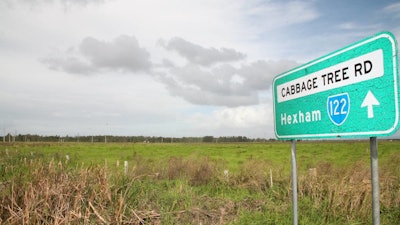
In the last 15 years, at least 39 people who have contacted cancer in Australia have one thing in common: They all live on the same 2.5-mile stretch of road.
Located in a small town in eastern Australia, the road runs near a Royal Australian Air Force base that, the residents claim, leaked fire-fighting foam into the town’s drains and waterways. The foam contained per- and polyfluoroalkyl substances (PFAS), a class of synthetic chemicals that have been in use in a wide array of industrial applications since the 1950s.
One study by the United Nations linked PFAS to cancer, but not every scientific body agrees on that conclusion.
For the residents on Cabbage Tree Road, however, fears are growing that exposure to the chemicals are going to lead to even more cancer cases. One resident told The Guardian that among the afflicted patients, there have already been 10 with breast cancer, eight with prostate cancer, five with bowel cancer and three with stomach cancer.
According to The Guardian, the Australian government knew about the contamination in 2003. Eventually, the government warned residents to avoid groundwater and not to eat any food grown on their property. The government also offered to provide bottled water to residents who needed it.
Tests have shown that residents have nonetheless continued to accumulate the chemicals in their body — including infants who have been shown to have the chemical present at above-average rates.
Studies have shown that PFAS can slowly accumulate in the body over time, creating what’s known as “body burden.”
Now, about 450 residents have brought a class-action lawsuit against the government. Some of the residents just want help relocating to a new home because news of the contamination has greatly reduced property values.
To its credit, The Guardian reports that Australian lawmakers have stepped up efforts to reduce PFAS exposure in the last few years. The chemicals have been banned in several states and the government has funneled millions of dollars towards research of PFAS and human health.
In the U.S., PFAS-related chemicals have faced similar bans and controversy.
Earlier this year, DuPont and Chemours were forced to pay $670.7 million to settle 3,550 lawsuits related to contamination from PFOA — a class of PFAS chemicals.
In the video below, two residents describe their battle with cancer to the Newcastle Herald.






















